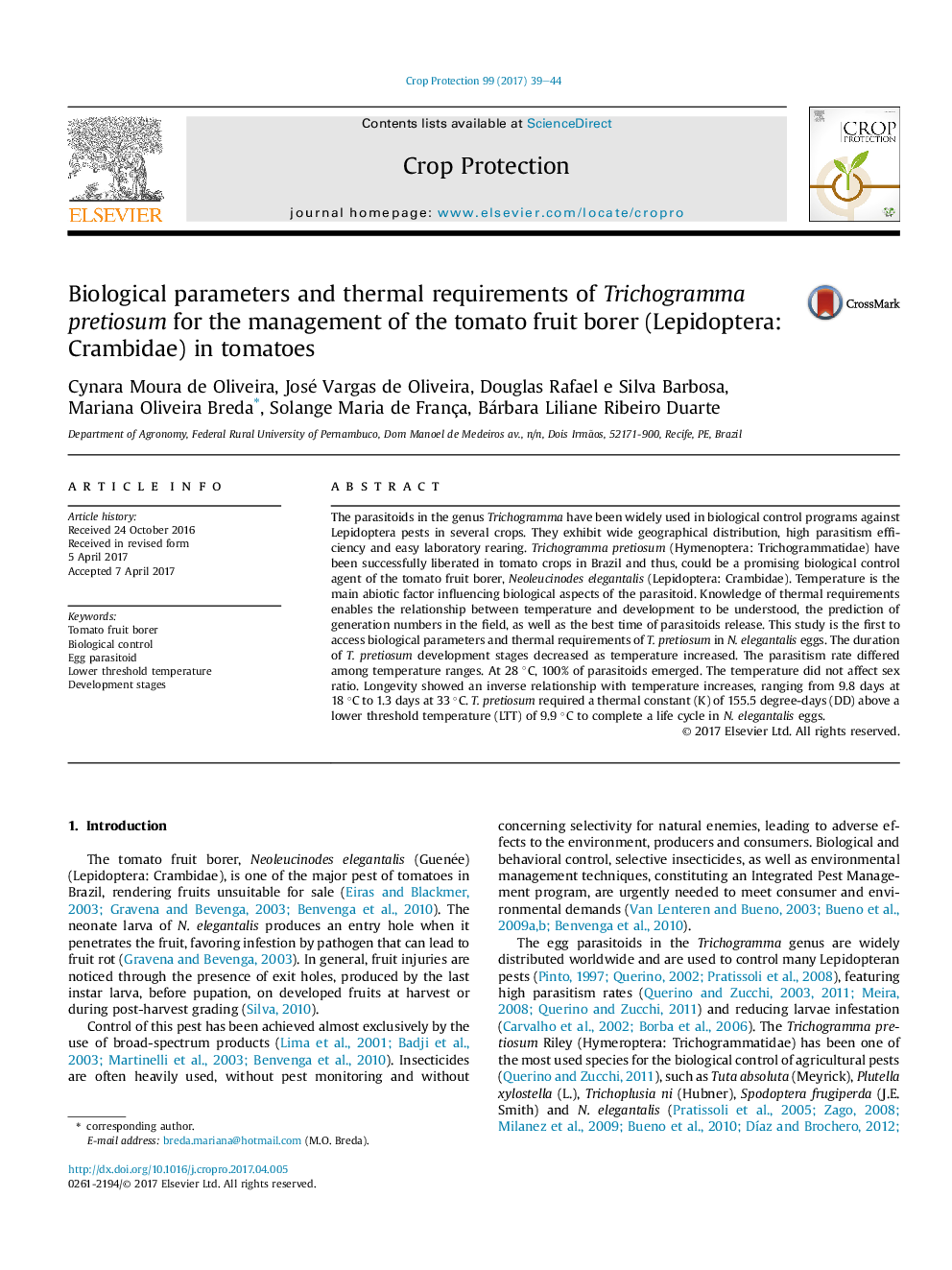| Article ID | Journal | Published Year | Pages | File Type |
|---|---|---|---|---|
| 5761032 | Crop Protection | 2017 | 6 Pages |
Abstract
The parasitoids in the genus Trichogramma have been widely used in biological control programs against Lepidoptera pests in several crops. They exhibit wide geographical distribution, high parasitism efficiency and easy laboratory rearing. Trichogramma pretiosum (Hymenoptera: Trichogrammatidae) have been successfully liberated in tomato crops in Brazil and thus, could be a promising biological control agent of the tomato fruit borer, Neoleucinodes elegantalis (Lepidoptera: Crambidae). Temperature is the main abiotic factor influencing biological aspects of the parasitoid. Knowledge of thermal requirements enables the relationship between temperature and development to be understood, the prediction of generation numbers in the field, as well as the best time of parasitoids release. This study is the first to access biological parameters and thermal requirements of T. pretiosum in N. elegantalis eggs. The duration of T. pretiosum development stages decreased as temperature increased. The parasitism rate differed among temperature ranges. At 28 °C, 100% of parasitoids emerged. The temperature did not affect sex ratio. Longevity showed an inverse relationship with temperature increases, ranging from 9.8 days at 18 °C to 1.3 days at 33 °C. T. pretiosum required a thermal constant (K) of 155.5 degree-days (DD) above a lower threshold temperature (LTT) of 9.9 °C to complete a life cycle in N. elegantalis eggs.
Related Topics
Life Sciences
Agricultural and Biological Sciences
Agronomy and Crop Science
Authors
Cynara Moura de Oliveira, José Vargas de Oliveira, Douglas Rafael e Silva Barbosa, Mariana Oliveira Breda, Solange Maria de França, Bárbara Liliane Ribeiro Duarte,
